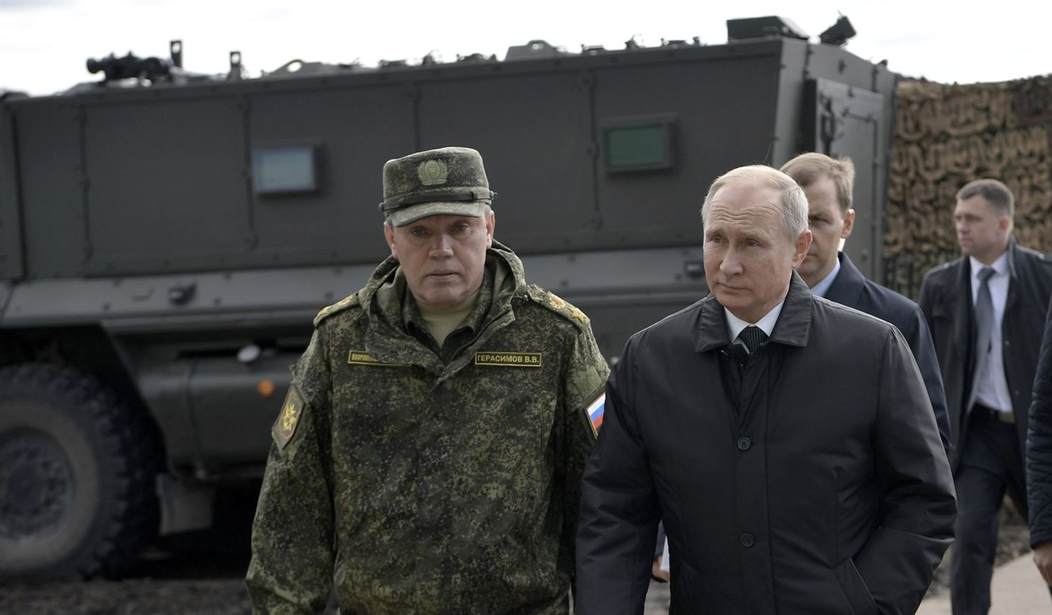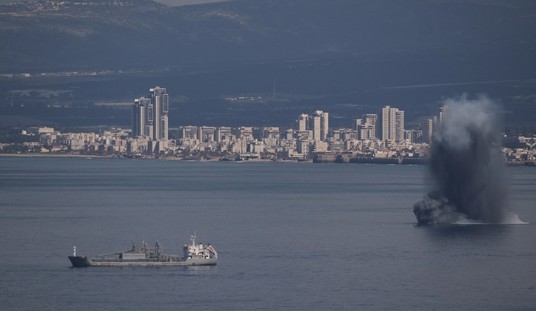In Western military doctrine, there are a series of axioms called “the Principles of War.” They vary slightly from country to country; in the US military, they are Objective, Offensive, Mass, Economy of Force, Maneuver, Unity of Command, Security, Surprise, and Simplicity.
These are mainly self-evident, and yet unless a conscious effort is made to adhere to them, they are violated, usually with dire results. I would submit that the 20-year goat rope in which we participated in Afghanistan was the direct and foreseeable outcome of not having an Objective that the application of military force could achieve.
The Russians seemingly made a point of violating each of these principles save Objective and Offensive. Their numerical superiority was frittered away by attacking on four axes that could not reinforce one another. Terrain conspired with lack of training to make maneuver a function of driving down a road in single file into prepared positions. Russian officers talked about battle plans on unsecured phone lines. The plan was unduly complicated and predicated on the assumption that most of the Ukrainian Army would not fight.
The biggest failing, though, was the failure to achieve Unity of Command. In the so-called first phase of the war, as many as three generals exercised control over the ground battle. It would not be a shock to find that the Russian Air Force and Navy each had separate commanders. As a result, the Russians’ overwhelming force was not used to maximize that advantage.
In early April, Putin attempted to remedy the command issues when he installed the commander of Russia’s Southern Military District, General Aleksandr Dvornikov, as commander of the entire “special military operation.” Dvornikov’s appointment was made based on three readily apparent factors. First, he was the most senior of the generals involved in the operation. He was widely viewed as the heir apparent to Chief of the General Staff of the Russian Armed Forces and First Deputy Defence Minister Valery Gerasimov. This would avoid any issues of seniority. Second, Dvornikov commanded Russian forces in Syria and gained a reputation for permitting casual brutality by the Russians deployed there and bringing various military factions that had operated independently under his control. Finally, the offensive efforts by the Southern Military District were viewed as the most successful part of Putin’s War in Ukraine.
Some three weeks into his appointment, it is safe to say that Gerasimov is not an heir to Zhukov of Vasilevsky. As I detailed yesterday, the Russian Army still hasn’t come to grips with the problem of focusing their increasingly battered forces in one area. Too few troops have too many things to do. And time is running out for the Russian Army as the Ukrainian Army becomes more capable and better equipped each day; read 10 Days Into Putin’s ‘New Phase’ of Russia’s Invasion of Ukraine, There Are Minor Advances but the Clock Is Ticking.
Now there are rumors of a significant shake-up in the conduct of Putin’s War and the command structure in the field.
The first rumor is that Russian President Vladimir Putin is taking over the strategic direction of the war.
👀
A senior EU source tells me: “Putin has now taken day-to day-control of the conflict and delegated the running of Russia to the Prime Minister”
— Mujtaba (Mij) Rahman (@Mij_Europe) April 29, 2022
Putin apparently steps back from 'running Russia' so he can focus full time on taking the world into global destruction. He has allegedly taken personal control of the Army.https://t.co/nbylae0R0R
— Dave Troy 🌻 (@davetroy) April 29, 2022
I doubt that anyone outside the Kremlin can verify this is absolutely true, but it is entirely possible. The war is no longer a Tartar slave raid; it is a war that will largely determine Russia’s future. My gut is that it will definitely determine Vladimir Putin’s future because he has built an image as the man who will restore Russia to its former greatness. The political and economic implications are rapidly dwarfing the military aspects, and as the leader of the nation, he must take charge. He can’t be seen to lose in Ukraine, and his ego tells him that he can win this if he devotes his full attention to the war.
The second rumored change is that Valery Gerasimov, the aforementioned Chief of the General Staff of the Russian Armed Forces and First Deputy Defence Minister, has been directed to take personal command of the war. No one knows if this means the “Butcher of Syria” Dvornikov has been relieved, is now functioning as a deputy to Gerasimov or is still in command with his boss watching his every move from close range. Likewise, no one is really sure how this makes things better.
Putin’s military chief General Valery Gerasimov has been sent “towards” the Ukraine eastern front to try to inject some Russian momentum. (Note: unconfirmed) https://t.co/G7BK4CJ33w
— JeremyReesnz (@JeremyReesnz) April 29, 2022
Retired Australian Major General Mick Ryan provides this analysis.
It is 64 days since the Russian invasion of Ukraine began. Today, an examination of the implications of Gerasimov ‘taking charge’ of the Russian invasion of Ukraine.
2/20 There are unconfirmed reports that General Gerasimov has moved to Ukraine and may be taking overall command of the Russian campaign. This is still in the realm of speculation. Therefore lets use this thread as a bit of a thought experiment.
3/20 General Gerasimov is the Chief of the General Staff of the Russian Armed Forces. He was appointed to this position by President Putin in November 2012.
4/20 Why is the chief Russian military commander taking over what is essentially a theatre command? If confirmed, this would be a significant intervention, probably directed by Putin, and may see a change in how Russian operations are planned and executed.
5/20 It is very unusual for the most senior military leader of a nation to ‘step down’ and assume an operational command. It is an indicator that Putin is running out of options for his Ukraine special operation. There are also some interesting strategic and operational impacts.
6/20 Strategic impacts. Who replaces him? Gerasimov has led the Russian military in their reforms for the past decade. He also commands the day to day running of the entire military, including strategic forces. It is not a position that should be left unfilled for long.
7/20 If Gerasimov goes to Ukraine, and no-one replaces him, who will oversee overall Russian military operations and development in short term, as well as any mobilisation?
8/20 Does it mean Russian military strategy will improve, or get even worse? Despite the mythic status of Gerasimov before the war, the performance of the Russian military he oversees – strategic to tactical – has been quite sub-par.
9/20 And not only has it been ineffective on the battlefield, but the atrocities also it has committed – city destruction, deliberate targeting of civilians, torture and murder – are indicative of a corrupt professional ethos. Gerasimov is ultimately responsible for this.
10/20 Finally, what does this mean about Putin’s mindset? Has he lost faith in Gerasimov?
11/20 In WW2, General MacArthur appointed US Army General Robert Eichelberger to command US forces at Buna. Before departing, Eichelberger was told “Bob, I want you to take Buna, or not come back alive.” Has Gerasimov been given a similar directive by Putin?
12/20 Or has both Putin and Defence Minister Shoigu set up Gerasimov as the fall guy for any Russian failure in the war?
13/20 Operational impacts. It appears, if Gerasimov’s appointment is confirmed, to place General Dvornikov’s appointment in a new light. Perhaps Gerasimov might be the overall joint commander, with Dvornikov assuming the function of land component commander.
14/20 Perhaps General Dvornikov has not proved the competent joint commander the Russian hoped for, or has not met strategic timelines for success.
15/20 Gerasimov is renowned as a military theorist. Despite the fact that his ideas are yet to be proven on the battlefield in Ukraine, perhaps Gerasimov might bring an improved level of joint planning and execution to Russian operations. Its a big maybe.
16/20 To do this, Gerasimov would need a joint planning staff. He will need more than a couple of command vehicles, an aide-de-camp and a secure satellite phone if he is to exert real command authority over Russian operations in Ukraine.
17/20 Good generals can generally be found in only a couple of places on the battlefield: at the location of most danger and the location of most opportunity. They do this so they can best marshal resources to support the commander on the ground, and to provide leadership.
18/20 Gerasimov would be going to the Russian Army’s place of most danger & opportunity. Most dangerous because a loss in the east would probably see a long pause in operations for the Russians to regenerate forces & rethink strategy. And would have a political impact for Putin.
19/20 And it is the place of most opportunity because it is probably the only location where Russia has any chance of an operational breakthrough that could allow them to tell their citizens (and their international friends) that the Russian military was successful in Ukraine.
20/20 Gerasimov, until recently, was seen as one of the better Russian theorists of the modern era. However, his reforms have not resulted in battlefield success. It is unlikely his presence on the battlefield, in charge of a tactically mediocre Russian force, will change things.
Political science professor and fixture in GOP Establishment foreign policy, Eliot Cohen, has some insights about what the move means in political terms.
If it is true that General Gerasimov is assuming direct command of combat operations in Ukraine from a forward headquarters there are, as ever, two possibilities. 1/6
The first is that as the Russians launch the decisive maneuver(s) of the war, they want their very best field commander to complete these heroic tasks, orchestrating fire and maneuver, land air and sea as only a superb field commander can. And obviously, he’s the best! 2/6
The second is that maybe he is not the reincarnation of Suvorov, Zhukov, etc. but a guy who has been the top staff job for over a decade. And things are going badly. Maybe very badly. Or at least potentially very badly. 3/6
One cannot blame the Boss for having launched this incredibly stupid war that will leave Russia weakened, isolated, with a stronger and larger NATO on its doorstep, particularly if you lose it to those Ukrainian peasants! 4/6
So you send the Chief of the General Staff to the front with the message, “Fix this or don’t come home.” You now have a really good person to blame (nobody has ever heard of Dvornikov anyway). And at this point, you’re not worried about a successful general launching a coup. 5/6
…because this thing may be an epic disaster. So you need a really good scapegoat. As always truth may well lie somewhere in between, but I bet on #2. No reason to think Gerasimov is, in fact, likely to be a skilled theater commander plus issues @WarintheFuture points out. 6/6
Final thought.
Both of these stories are unconfirmed as of this writing. Both stories are believable in the context of the political and military mess Putin’s War has become. Neither move is a sign of confident leadership.












Join the conversation as a VIP Member